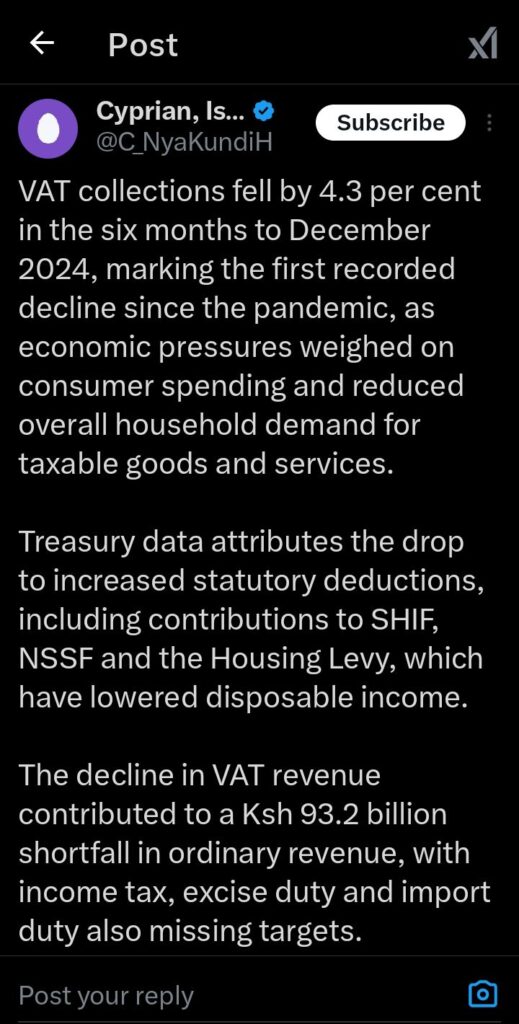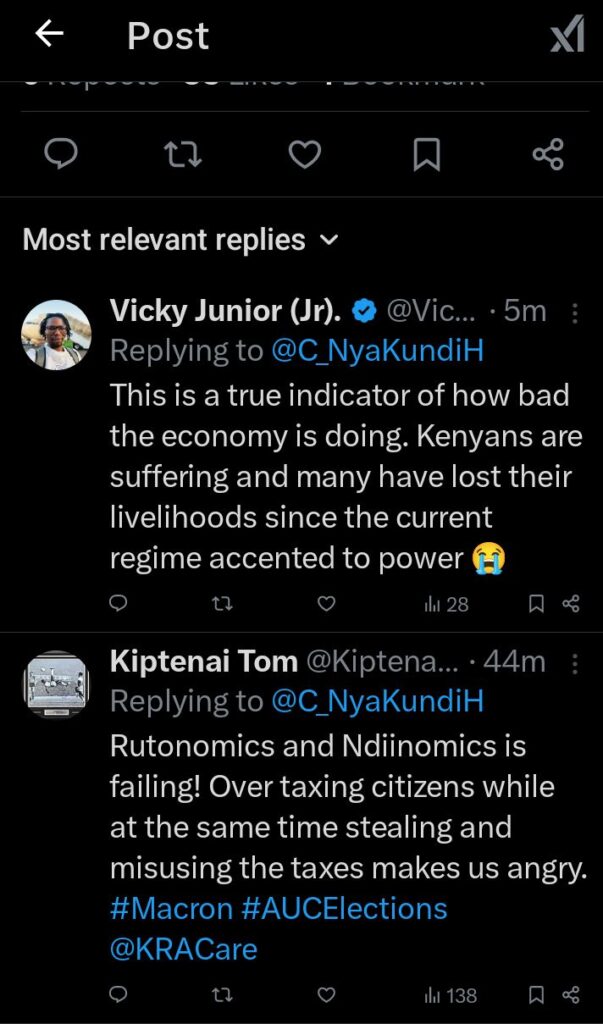The Value Added Tax (VAT) collections in Kenya experienced a notable decline of 4.3 per cent during the six months leading up to December 2024.
This marks the first recorded drop since the pandemic, highlighting the ongoing economic challenges faced by the country. The decrease in VAT revenue is largely attributed to economic pressures that have significantly impacted consumer spending.
As households grapple with reduced disposable income, the demand for taxable goods and services has also declined, leading to lower VAT collections.
This trend underscores the struggles within the economy, where many families are prioritizing essential needs over discretionary spending.

According to Treasury data, one of the key factors behind this decline is the increase in statutory deductions. These include contributions to the Social Health Insurance Fund (SHIF), the National Social Security Fund (NSSF), and the Housing Levy.
While these deductions are intended to support long-term social and economic goals, they have had an immediate impact on the amount of money available to consumers. With less disposable income, households are cutting back on purchases, particularly those that attract VAT.
This reduction in spending has created a effect, leading to lower revenues for businesses and, consequently, for the government.
The decline in VAT collections has contributed to a significant shortfall in ordinary revenue, amounting to Ksh 93.2 billion. This shortfall is not limited to VAT alone; other key revenue streams such as income tax, excise duty, and import duty have also fallen short of their targets.
The combined effect of these revenue declines poses a challenge for the government, which relies on these funds to finance public services and development projects.
The situation is further complicated by the need to balance fiscal responsibility with the growing demand for social and economic support amid tough economic conditions.
The drop in VAT revenue is a clear indicator of the broader economic pressures facing Kenya. High inflation, rising costs of living, and stagnant wages have all played a role in reducing consumer confidence and spending power.

As a result, businesses across various sectors are feeling the pinch, with many reporting lower sales and profitability. This, in turn, affects their ability to contribute to the tax base, creating a cycle of declining revenue.In response to these challenges, the government may need to consider measures to stimulate economic activity and boost consumer confidence.
This could include reviewing the impact of statutory deductions on disposable income, providing targeted support to vulnerable households, and implementing policies that encourage business growth and job creation. Without such interventions, the decline in VAT collections and other revenue streams could persist, further straining the country’s fiscal position and delaying economic recovery.
The situation calls for a careful balance between addressing immediate economic pressures and maintaining a sustainable long-term fiscal strategy.





















Add Comment